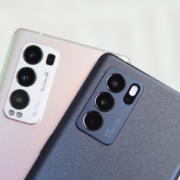A new Vodafone Institute report, produced by Kantar with input from the Wuppertal Institute, shows younger Europeans are at the forefront of choosing pre‑owned devices and repairs, signalling a cultural turn towards reuse. Awareness is high, around two‑thirds know about refurbished options, yet only three in ten have bought one so far. Momentum is building, however: 40% expect their next handset to be refurbished, and 81% of existing buyers intend to repeat the choice. Country differences are stark, with France leading on past purchases and Germany lagging, while Generation Z is more than twice as likely as Baby Boomers to have opted for a refurbished phone or a repair.
Despite the appetite for circular choices, Europe still has a dormant stock of idle tech. Roughly half of users keep old smartphones after upgrading, largely unused or as a standby, and only small fractions are recycled or traded in. Barriers include uncertainty about what to do, data privacy worries and sentimentality, particularly among Gen Z and tech enthusiasts. Repair behaviours vary widely: Spain, Sweden and the UK post far higher repair rates than Germany, and younger users repair far more often than older cohorts. Most owners use their current device for two years or less, with Tech Enthusiasts and Prestige‑driven buyers upgrading fastest, while cost‑driven users keep phones longest.
Price and utility still dominate buying decisions across Europe, with “Functional” and “Cost‑Driven” users comprising about two‑thirds of the market and “Sustainability”‑led consumers around 15%. Even so, the study suggests circular policies can accelerate progress: support for the right to repair, repair incentives, product passports and lower VAT on greener products is strong. As AI‑era demand meets constrained resources, expanding reputable refurbished channels, secure data‑wipe services, easy trade‑ins and accessible repairs could unlock millions of dormant devices, cutting emissions and material use while offering better value to consumers.


 Europe
Europe








